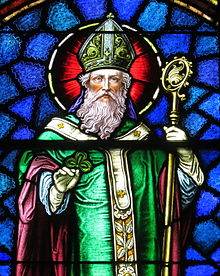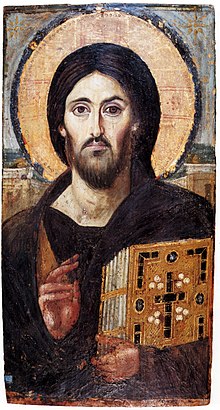Portal:Religion
The Religion Portal
Religion is a range of social-cultural systems, including designated behaviors and practices, morals, beliefs, worldviews, texts, sanctified places, prophecies, ethics, or organizations, that generally relate humanity to supernatural, transcendental, and spiritual elements—although there is no scholarly consensus over what precisely constitutes a religion. Different religions may or may not contain various elements ranging from the divine, sacredness, faith, and a supernatural being or beings. (Full article...)
 Vital article
Vital article
Vital articles to understand Religion.
Taoism (/ˈdaʊ.ɪzəm/ ⓘ, /ˈtaʊ.ɪzəm/ ⓘ) or Daoism is a diverse tradition indigenous to China, variously characterized as both a philosophy and a religion. Taoism emphasizes living in harmony with the Tao—generally understood as being the impersonal, enigmatic process of transformation ultimately underlying reality. The concept originates in the Chinese word 道 (pinyin: dào; Wade–Giles: tao4), which has numerous related meanings: possible English translations include 'way', 'road', and 'technique'. Taoist thought has informed the development of various practices within the Taoist tradition and beyond, including forms of meditation, astrology, qigong, feng shui, and internal alchemy. A common goal of Taoist practice is self-cultivation resulting in a deeper appreciation of the Tao, and thus a more harmonious existence. There are different formulations of Taoist ethics, but there is generally emphasis on virtues such as effortless action, naturalness or spontaneity, simplicity, and the three treasures of compassion, frugality, and humility. Many Taoist terms lack simple definitions and have been translated in several different ways. (Full article...)
 Did you know (auto-generated)
Did you know (auto-generated)
Did you know it about Religion?
- ... that some stone circles such as Stonehenge were perhaps great graveyards of honoured spiritual leaders in prehistoric religion?
- ... that in her 2021 book White Evangelical Racism, professor of religion Anthea Butler called American evangelicalism a pro-Trump, "nationalistic political movement"?
- ... that the nonconformist minister Ichabod Chauncey was banished from England under the Religion Act 1592 and spent two years in exile in Holland where he published a defence of his actions?
- ... that fictional religions, often described in speculative fiction, have in some cases inspired real religious movements?
- ... that a religious community is a group of people who practice the same religion, but do not have to live together?
- ... that Gamaliel's principle has been used to support religious pluralism and reforms within religious groups?
Featured articles in Religion.

Top 10 WikiProject Religion Popular articles of the month
This following Religion-related articles is a most visited articles of WikiProject Religion, See complete list at Wikipedia:WikiProject Religion/Popular pages.
 Subcategories
Subcategories
Select [►] to view subcategories
Topics
Select [show] to view subtopics
 Get involved
Get involved
For editor resources and to collaborate with other editors on improving Wikipedia's Religion-related articles, visit WikiProject Religion.
Discover Wikipedia using portals








































![Image 1 A haft-sin arrangement, traditionally displayed for Nowruz in Iran. Nowruz (Persian: نوروز [noːˈɾuːz]) is the Iranian or Persian New Year celebrated by various ethnic groups worldwide. It is a festival based on the spring equinox—which marks the first day of the new year in the Iranian Solar Hijri calendar, on or around 21 March on the Gregorian calendar. (Full article...)](http://upload.wikimedia.org/wikipedia/en/d/d2/Blank.png)



















